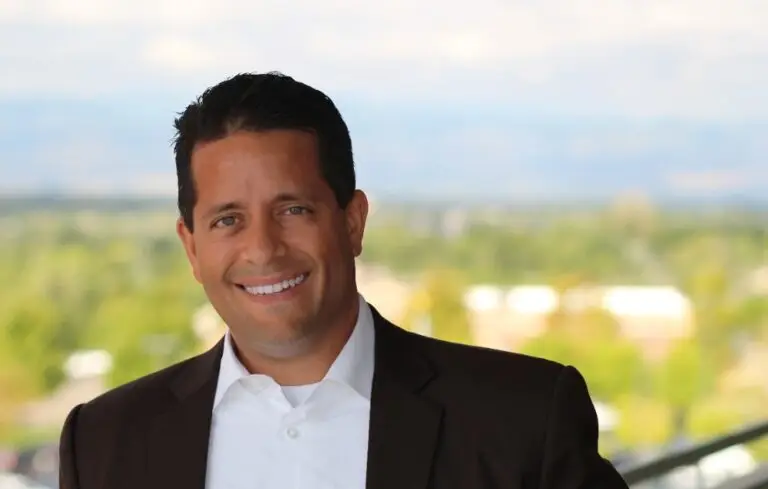It takes purposeful courage to play multiple positions in a game; the same is true in business. Leaders courageous enough to adopt willful contrarianism are likelier to see the future first and hone a courage edge that helps them take advantage of disruption and seize new growth opportunities. Willful contrarianism explicitly takes a point of view about the future that runs counter to conventional business wisdom and is a powerful antidote to the curse of sameness.
Every firm thinks it’s unique but, despite their best efforts, is more likely to be very similar to their industry peers. Take the investor buzz around Big Tech’s financial gains despite every firm having the same “AI-everywhere” strategy or wanting to be “leaner and more efficient.” With access to the same capabilities, most leaders suffer from leadership FOMO, playing a strategy game of imitation over innovation. The risk of sameness will likely worsen as AI adoption and the democratization of everything spreads, yet this differs from the courage advantage; leaders must evolve from a collective fear of change to embracing evolution at the speed of change itself.
If leaders ask, “What are we doing differently that our competition isn’t?” what would you answer? I asked a team at a technology firm the same question, and their response was, “AI co-pilots.” The problem was when I asked leaders at three other competitors the same question, the response was the same. Naturally, this has happened. Firms are essentially thinking about the future in the same way, constantly chasing the “shiny new thing.” Remember the metaverse? Leaders must recognize sameness when it happens and explore the contrarian view to help break the spell and risk a race to the bottom. We will get the same outcome if we keep doing the same thing, especially with spiraling costs, inflation and changing customer preferences.
Sameness around growth is a problem, too. Hack Future Lab’s research shows that across all industries, leaders believe 60 percent of their revenues will come from new markets, products or business models within the next five years. Yet, on average, every industry only achieves between three percent and 12 percent growth from new or adjacent breakout businesses. The math doesn’t work. Leaders are in denial about the sameness dilemma and its corrosive impact on future readiness. How much of our mindset is impacting our view of tomorrow? A mindset of courage sees the upside in disruption: choice, opportunity and growth. A mindset of fear misses the upside of disruption. It reduces opportunity.
At Patagonia, willful contrarianism is part of its DNA. Founded in 1973 in California by rock climber Yvon Chouinard, it now boasts hundreds of outlets on five continents. Despite being well known for selling outdoor apparel, its origins are in climbing gear since climbing enthusiast Chouinard saw the need for tools that wouldn’t harm rocks early on. Since the 1980s, the firm’s “One Percent for the Planet Scheme” has allocated one percent of its sales toward preserving and restoring the natural environment, resulting in $140 million in donations to support grassroots environmental groups worldwide. We all know that the world is not in good shape, and signs of the extreme, and in some cases, irreversible changes humans have made to the climate are now impossible to ignore. The UN Secretary-General says that “our world is burning,” and the Intergovernmental Panel on Climate Change (IPCC) warns, “It is unequivocal that human influence has warmed the atmosphere, ocean and land.”
Every industry is held captive to the sameness strategy: growth at any cost, value extraction, short-termism and linear consumption patterns mean humanity’s demand for nature exceeds what ecosystems can supply. According to a World Wildlife Fund (WWF) study, “more than a third of Earth’s natural resources have been destroyed by humans in just 30 years,” leading to an ecological overshoot and 60% of animals going extinct since the 1960s. For Chouinard, climate risk isn’t just a business risk. It’s a force for willful contrarianism because a long-term sustainable future has no alternative. In an annual letter, Chouinard writes, “Even public companies with good intentions are under too much pressure to create short-term gain at the expense of long-term vitality and responsibility. There were no good options available. So, we created our own.” Chouinard, already one of the most provocative thinkers about capitalism’s social purpose, has decided to raise the contrarianism stakes and make Earth his company’s only shareholder.
Economist Milton Friedman’s notion that a company’s sole purpose is to maximize shareholder profits presupposed a world where entire industries are always one step ahead of the regulators. The fashion industry dumps 2.1 billion tons of carbon dioxide into the atmosphere yearly. That’s equal to the pollution from 456,707,817 cars in the same time frame, and globally, just 12 percent of the materials used for clothing end up recycled. Chouinard’s willful contrarianism has allowed him to reject Friedman’s famous dictum because he doesn’t believe the model of shareholder capitalism is good for the world. He doesn’t even think it’s good for capitalism.
In a letter about the decision, published on the Patagonia website, he writes of “reimagining capitalism,” moving from empty platitudes about sustainability to anchoring purpose in unwavering values. The Patagonia Purpose Trust and the Holdfast Collective, a group of non-profit organizations, will now own the privately held firm’s stock and channel the profits to environmental causes. It expects to give $100 million annually to support causes that repair, restore and regenerate our world and make great companies.
“Instead of extracting value from nature and transforming it into wealth for investors, we’ll use the wealth Patagonia creates to protect the source of all wealth,” he says. “Each year, the money we make after reinvesting in the business will be distributed as a dividend to help fight the crisis.” Chouinard’s willful contrarianism has enabled Patagonia to replace timidity with boldness; it has rejected the external pressure to deliver “more with less” and comes when business needs more contrarian leaders. It could be said that Patagonia made the ultimate bold pivot to a circular future; instead of going “public,” they are going all in on “purpose.”
Here are three lessons for any leader to unlock the benefits of willful contrarianism and a contrarian mindset.
1. Start with billion-dollar beliefs
A billion-dollar belief is thinking on a different horizon and answering “What are we certain about?” with clear-eyed conviction. Billion-dollar beliefs give leaders a determined focus on what matters and are clarifiers for bringing a bold leadership agenda to life. Sustainability is a here-to-stay, billion-dollar belief that is more than moving away from being something you do to have a little green label to increasingly putting your whole business model, strategy and value chain in a much more resilient position. It’s about making products nature-positive and reversing nature loss, but it’s also about multiplying value for a better tomorrow. Too many leaders disempower themselves by constantly chasing uncertainty. Don’t be an “uncertainty chaser.” A wiser and less common approach is to frame the future with the certainties of a billion-dollar belief.
2. Avoid the “tragedy of the horizon”
How do long-term-focused leaders thrive in a short-term world? I was invited to speak about leading in the future alongside Mark Carney, the former governor of the Bank of England. A big takeaway from our conversation was the “tragedy of the horizon”—a collective blind spot where many leaders linger. Most business cycles are short-term, whether quarterly earning reports, annual performance reviews or central bank forecasts. Leaders become “nowists” under pressure to prioritize short-term results and strategies of sameness over long-term thinking. Patagonia takes a deeper strategic perspective by pulling future challenges, such as climate risk, back to the present to make the right bold but necessary decisions today. Leaders are more willing to make more significant, more courageous decisions when they lead from the future instead of the present. That’s how we solve the tragedy of the horizon.
3. In bold, we thrive
The days of focusing solely on the shareholder are gone. Firms anchoring their strategies to a meaningful purpose, focusing on creating long-term sustainable value, will win. Tackling climate risk is not just improving supply chains or offsetting carbon emissions. For Patagonia, it demands rethinking, re-focusing and re-positioning the DNA of what the firm does, why it does it and how it does it. Adopting billion-dollar beliefs will cause some industries to shrink and others to expand.
Patagonia has turned its billion-dollar beliefs of responsible business and stakeholder capitalism that respects nature into a platform for future readiness: it shows the urgency to move away from economist Milton Friedman’s narrow definition of capitalism, encouraging leaders to look for better ways to reconcile capitalism and the climate crisis. The takeaway is that making a business sustainable and profitable is not mutually exclusive. Solving the “tragedy of the horizon” amid intensifying environmental and waste challenges is possible. By seizing the upside of rethinking cycles and embracing change before it becomes an existential risk, Patagonia is an organization already living in the future.
Excerpted with permission from the publisher, Wiley, from The Upside of Disruption: The Path to Leading and Thriving in the Unknown, by Terence Mauri. Copyright © 2024 by John Wiley & Sons, Inc. All rights reserved. This book is available wherever books and eBooks are sold.







